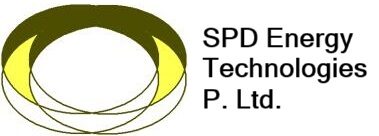Electrical, Instrumentation & Control Systems in Solar Energy
At SPD Energy Technologies, we specialize in the seamless integration of Electrical, Instrumentation, and Control System Engineering to optimize solar power generation. Our expertise ensures that solar energy systems operate with maximum efficiency, reliability, and safety.
Electrical Engineering
System Design – Developing optimized electrical systems for solar power plants, including PV arrays, inverters, and grid connections.
Power Distribution – Efficiently managing the flow of generated solar power to grids and storage systems.
Safety & Compliance – Ensuring all electrical components meet industry standards and regulatory requirements.
Instrumentation Engineering
Sensor Integration – Installing advanced sensors to monitor key parameters such as solar irradiance, temperature, and energy output.
Data Acquisition – Collecting real-time data to enhance performance analysis and system optimization.
Maintenance & Calibration – Regular servicing to ensure accurate monitoring and long-term reliability.
Control System Engineering
Automation & Tracking – Implementing smart control systems for automated solar panel tracking and energy management.
SCADA Monitoring – Utilizing SCADA systems for real-time monitoring and control of solar power plants.
Fault Detection & Management – Advanced control algorithms to detect, manage, and prevent system faults.
Data-Driven Optimization
System Integration – Combining electrical, instrumentation, and control systems into a cohesive solar energy ecosystem.
Performance Monitoring – Continuous monitoring and automated adjustments for peak efficiency.
Predictive Maintenance – Using AI-driven analytics to predict and prevent potential system failures.
This holistic approach ensures that solar energy systems are efficient, safe, and future-ready. Partner with us to power a greener tomorrow!


